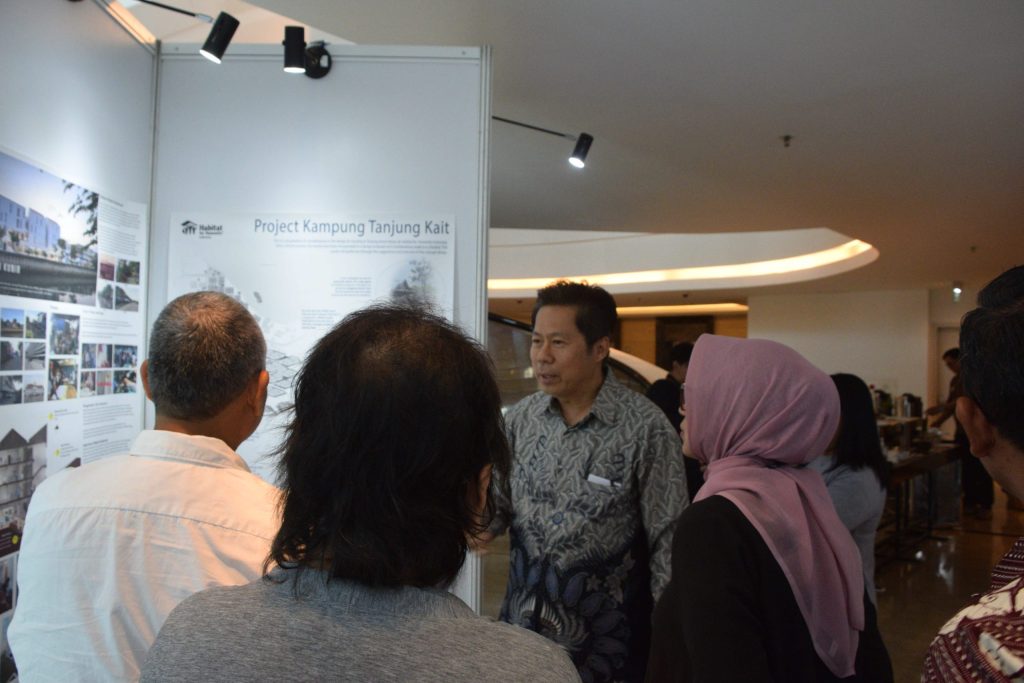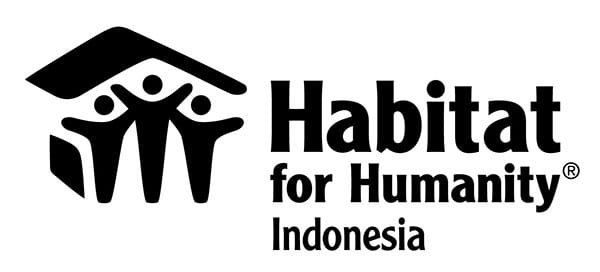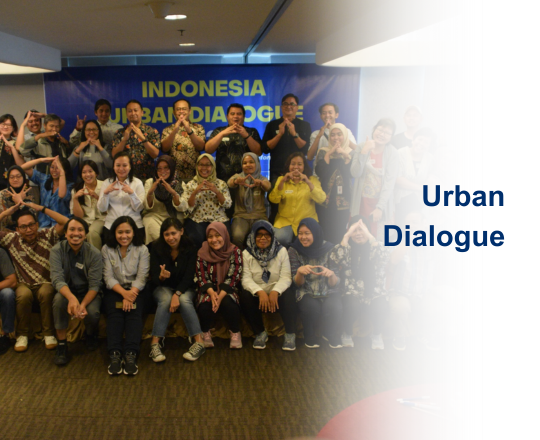
Policy Solutions Towards Equitable Access to Adequate Housing in Urban Settlements
In 2019, for the first time in history, Asia and Pacific became predominantly urban with more than 50% of its population living in cities. The region’s urban population has exceeded 2.3 billion, with another 1.2 billion urban dwellers to be added by 2050. The extent of urbanization and its future trend put cities in the Asia-Pacific region at a critical juncture of immense economic opportunities accompanied by urban challenges.
Asia-Pacific Urban Dialogue serves as a platform for communication, discussion, and collaboration among diverse stakeholders, including government bodies, non-governmental organizations, academics, civil society, property developers, local community representatives, and private sectors. Focused on inclusive and sustainable solutions, Urban Dialogue addresses key issues such as providing decent housing, basic services, environmental concerns, social inequality, and land tenure for low-income communities in urban areas and informal settlements. This initiative facilitates the exchange of knowledge, perspectives, and experiences, fostering mutual understanding and exploring viable solutions.
As part of the Habitat Day commemoration in October 2023, the Indonesian Urban Dialogue was jointly organized by the Gotong Royong Housing Coalition and Habitat for Humanity Indonesia on October 4-5th, 2023. This event aims to create a space for identifying challenges, formulating policies, and planning effective programs to enhance housing access and land ownership for low-income urban communities. The dialogue format, whether through workshops, panel discussions, or public and online meetings, will be tailored to address the complexity of these issues.
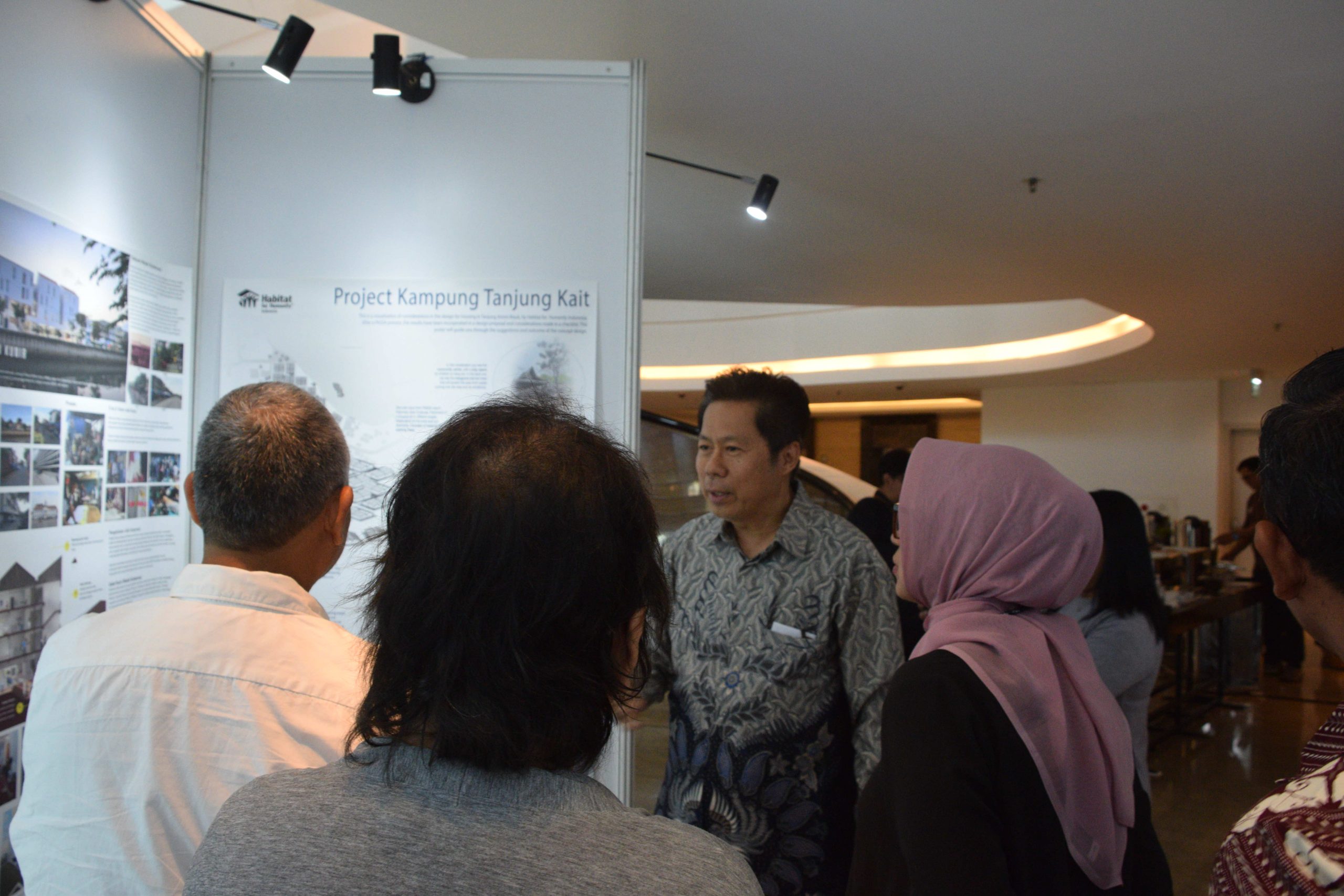
Informal settlements, integral to the urban landscape, arise from a self-help approach, contributing to a substantial 69% of housing provision in Indonesia. The resilience and self-sufficiency of these communities represent significant assets in the endeavor to provide adequate housing.
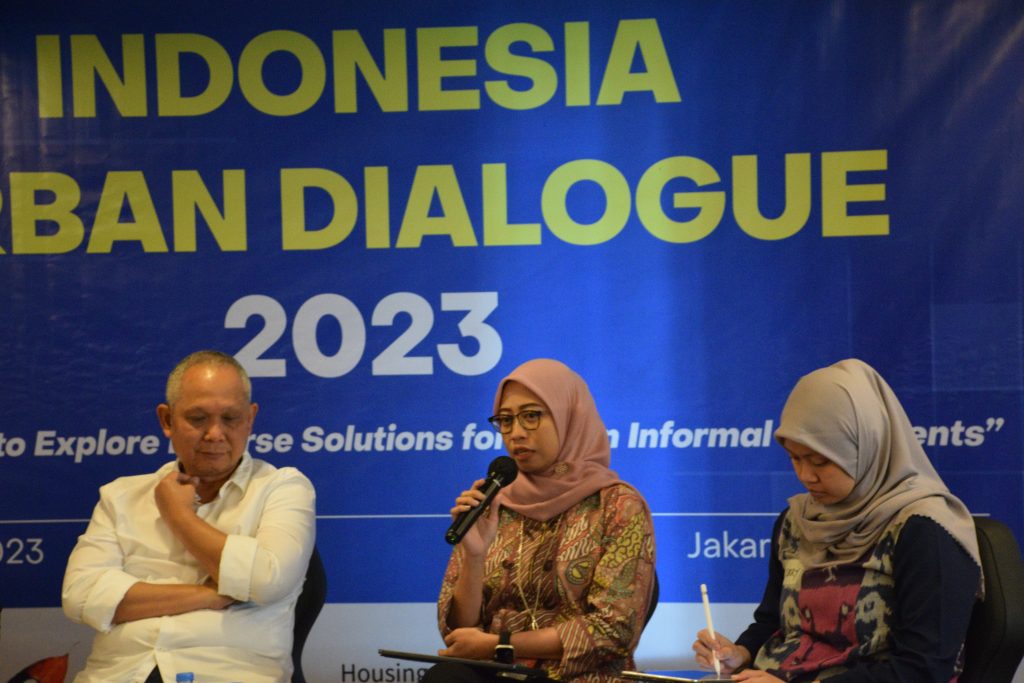
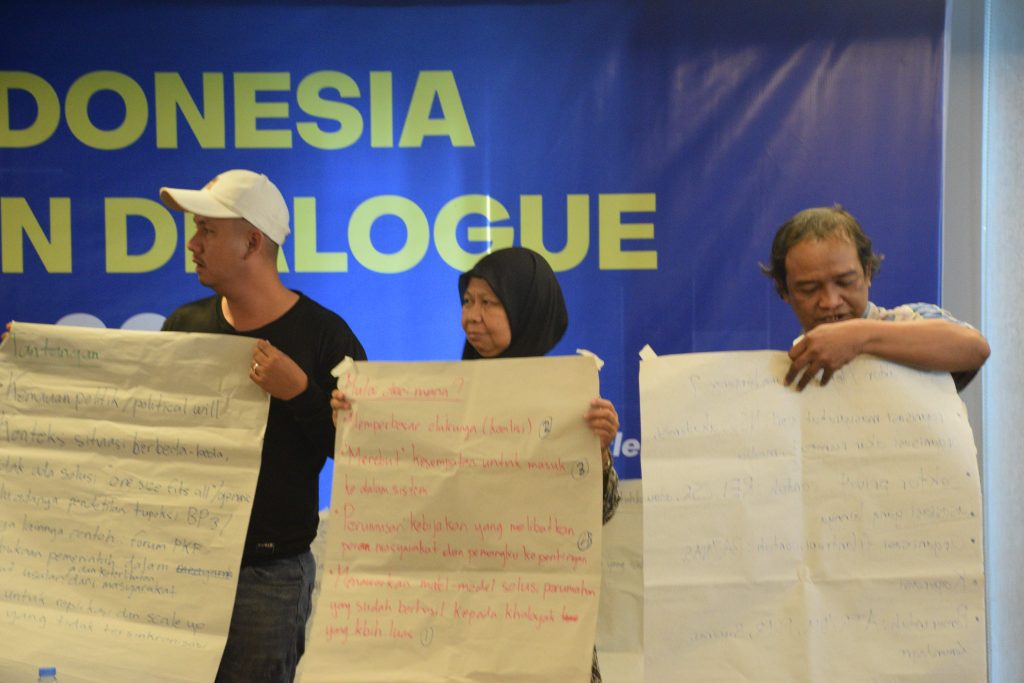
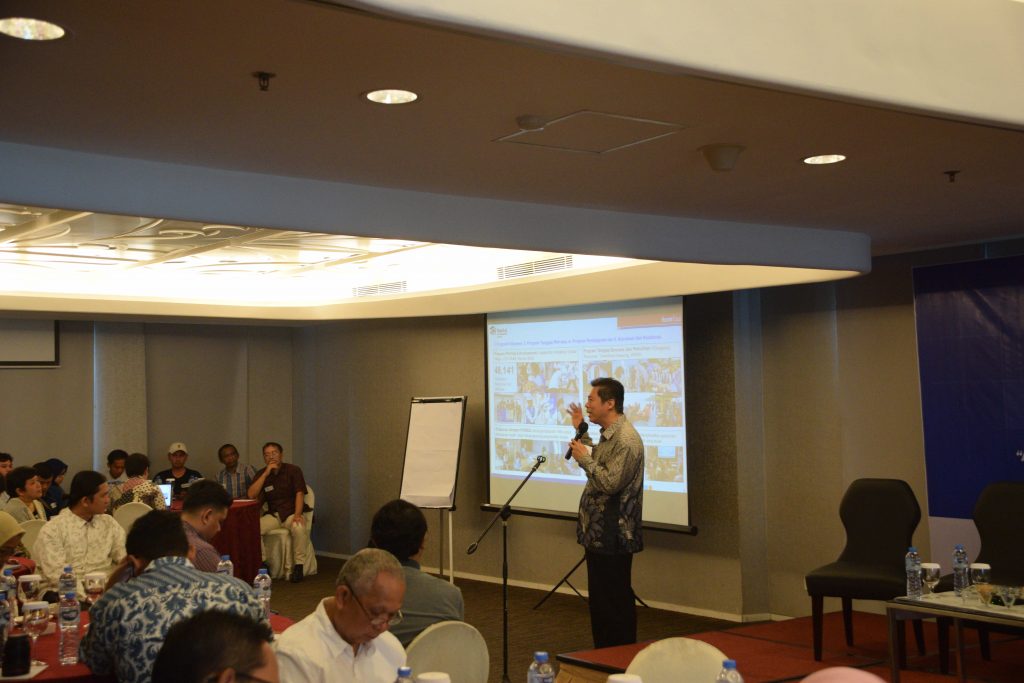
Due to the housing problem in Indonesia, we constantly have three fundamental challenges:
1. Inequality in land tenure
Land in the city is increasingly controlled by a handful of parties in astonishing proportions. According to the World Bank report, in 2015, 0.2% of Indonesia’s population owns 74% of the land in Indonesia, while the other 99.8% of Indonesia’s population only owns the rest. Throughout Jabodetabekpunjur, RCUS calculated that 2018 developers controlled around 35,000 hectares as land reserves (land banks), equal to 60% of DKI Jakarta Province’s area. This inequality in land tenure has contributed to the increase of land and housing prices, in addition to other negative urban impacts, such as sprawling urban development and the ecological crisis. The impact of inequality is not only real in Jabodetabek but also occurs in Surabaya, Makassar, and Yogyakarta. For example, in two years, land prices in Surabaya could increase from 60-100%. Land Banks chosen by the Government, including State-Owned Enterprises, often collaborate with private parties rather than with communities or the general public.
2. Liberalization of the housing sector
After the 1997 Monetary Crisis, the portion of the budget related to housing in Indonesia continued to decline. In 2015, the housing budget was only 0.4% of the total APBN or the equivalent of 0.06% of GDP. Housing procurement, especially to meet the supply side for low-income communities, relies heavily on financing through the secondary market channeled through banks. This model also relies heavily on developers to continue to build subsidized housing. The government-banking-developer triage brings public housing to the market where only individuals who’s considered as “bankable” can access the program. The choice of subsidized housing products offered is very limited. Liberalization has affected housing for low-income people and housing in general. The absence of a mechanism to control the supply and demand for housing makes housing a product of speculation,financialization, and investment.
3. Adequate housing is considered a sectoral issue.
Despite Article 28H and the ratification of Law 11 of 2005, adequate housing is only considered part of infrastructure or sectoral issues. Apart from that, human rights issues are not prioritized in various policy products related to housing. Various policy products run independently, such as agrarian, spatial planning and zoning, housing finance, and planning, in various separate sectors without a clear strategy and holistic institutions. Village improvements often occur in various regions are not preceded and are based on participatory planning and the desire to resolve spatial and agrarian conflicts. Finally, repeated slums, gentrification, and forced evictions continue to threaten.

These three main problems ultimately produce derivative problems and cause other symptoms, for example:
1.Available housing is increasingly unaffordable
The ratio of house installments to UMR in DKI Jakarta, DIY, West Java, and East Java in 2017 has reached 77.04%, 85.01%, 88.9% and 124.34%. Workers must bear the burden of installment payments that consume most or all of their income.
2.Forced evictions are and will continue to occur.
Inequality in land tenure, which results in the increasingly minimal existence of affordable housing in various places, is also the main cause of the problem of economic-social inequality in society. The assumption that adequate housing is only a matter for the housing sector means that issues of agrarian conflict related to housing are never discussed in village improvement matters. The root of this problem is not considered a housing issue, but in the end, it is why forced evictions continue to occur.
3.Negative effects of ownership-based housing
The existing subsidized financing program was launched to subsidize homeownership as part of an effort to “overcome the ownership backlog.” Homes are based on limited resources (namely land), and residential property prices rarely decline. Here, the market mechanism of the law of supply and demand does not apply. When prices are so high that people can no longer absorb them, house prices remain high. This ownership model is what drives speculative demand. Therefore, houses should not be needed as a commodity product. Funds originating from the public should not be used for individual ownership.
In the context of Indonesia, there are five fundamental issues in the “urban dialogue” involving stakeholders in the housing
1.Different Perspectives:
Stakeholders such as developers, the government, local communities, and civil society organizations may have distinct and/or conflicting interests.
2.Limited Resources:
Sometimes, resource constraints can challenge finding solutions that satisfy all parties. 3.Unequal Access: Not all city residents have the same access to housing and infrastructure. Vulnerable groups such as the poor, disabled, and ethnic minorities often face greater difficulties accessing adequate housing.
3.Coordination and Implementation:
Sufficient coordination between stakeholders and the government regarding agreed-upon solutions is crucial to achieving desired outcomes, but functional relationships may not always exist.
Environmental Impacts:
Any negative impacts on the environment and surrounding ecosystems for new housing and infrastructure development must be seriously considered, and sustainable solutions should be pursued
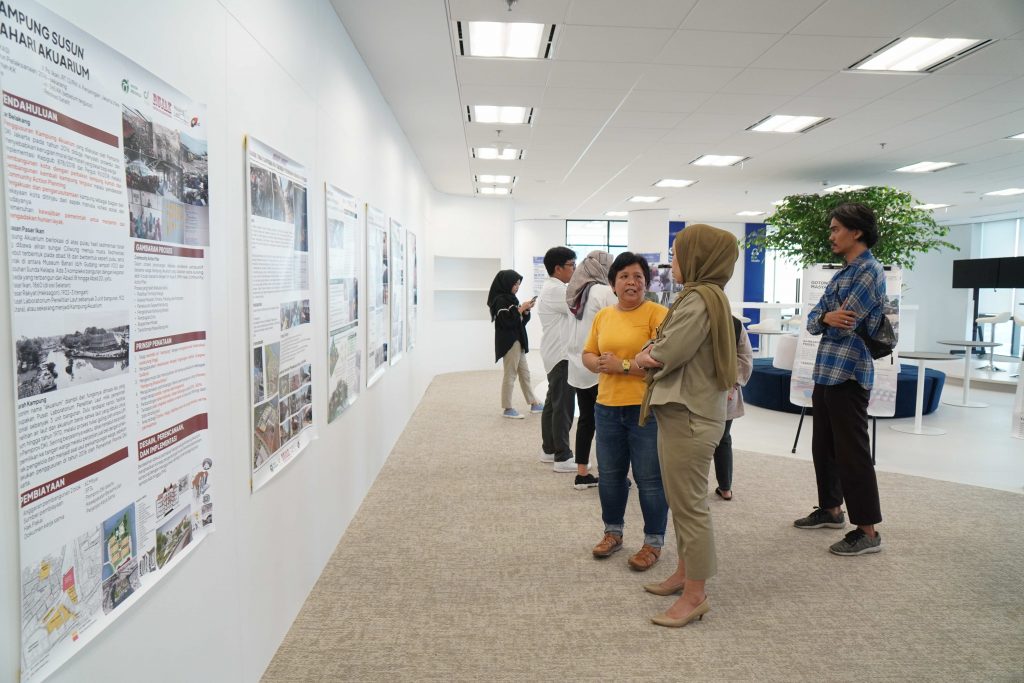
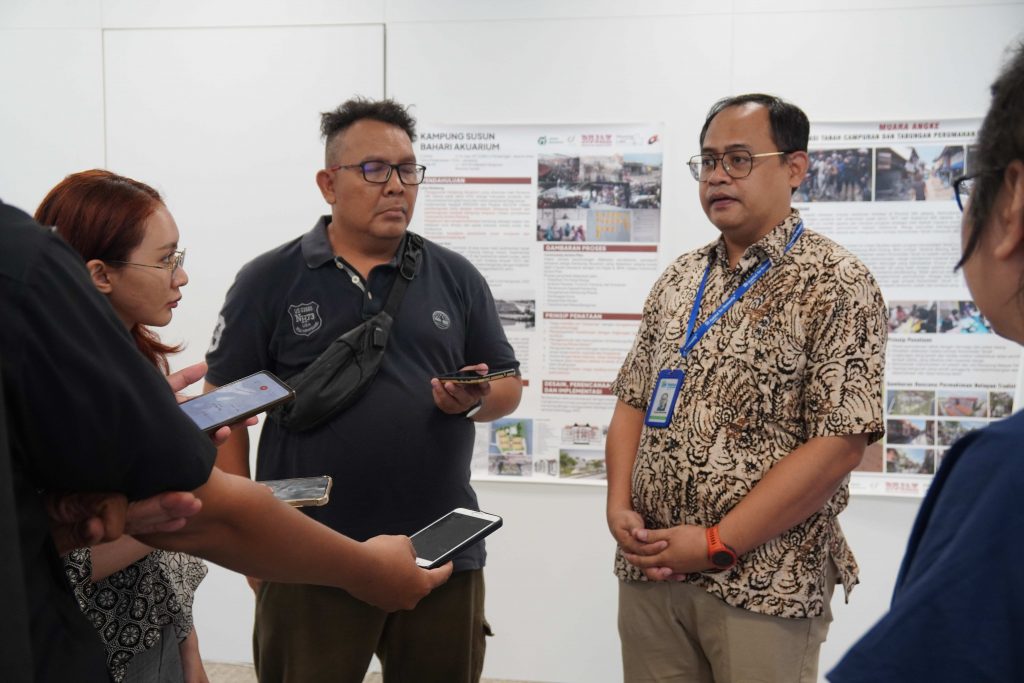
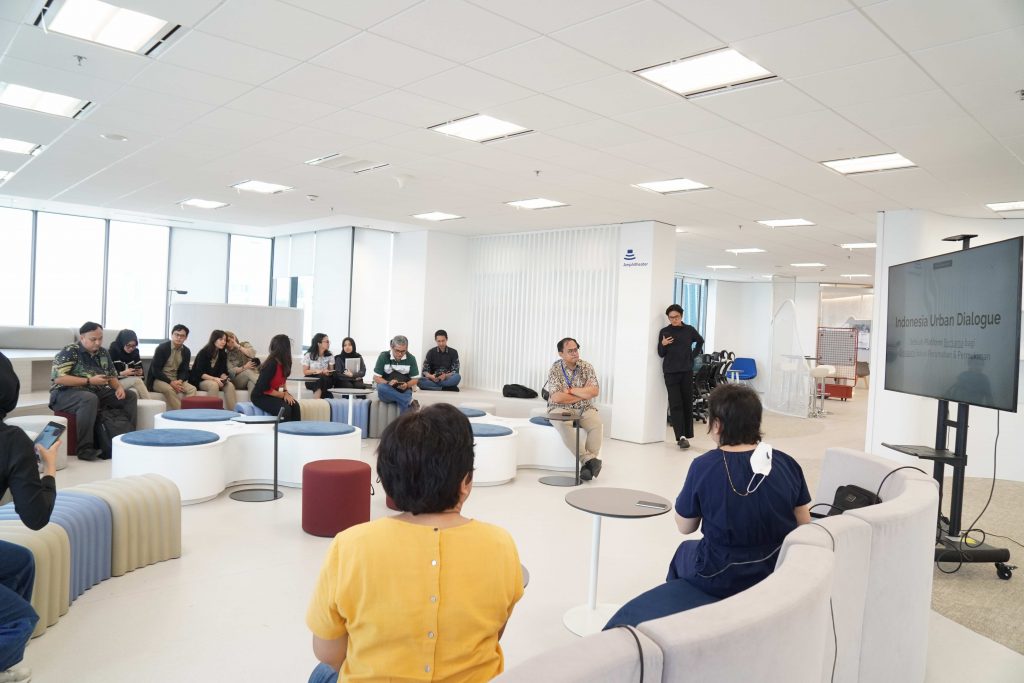
The purposes of the “urban dialogue” in the context of providing decent housing and land tenure for low-income communities living in urban areas and informal settlements are:
1.Understanding Needs and Aspirations:
Stakeholders understand the needs and aspirations of low-income communities living in urban areas and informal settlements which help in designing programs and policies with focused solutions to meet their needs.
2.Seeking Joint Solutions:
The government, non-governmental organizations, local communities, and developers explore sustainable and inclusive solutions using a collaborative approach in the planning and implementing of affordable housing solutions, homeownership schemes, or rental assistance programs.
3.Enhancing Land Tenure:
Issues related to land ownership and community rights in informal settlements are identified for low-income communities to secure safe and guaranteed land tenure.
4.Climate Change Adaptation:
The resulting initiatives enhance natural disaster resilience and promote sustainable infrastructures by safeguarding against disasters and promoting eco-friendly practices by identifying vulnerable regions, constructing disaster-resilient buildings, improving drainage systems, and establishing emergency shelters.
5.Basic Services:
Access to basic services such as clean water, electricity, and proper sanitation infrastructure are ensured to promote social and economic inclusion. Other social services, such as education and healthcare, also provide equal opportunities for participation and reduce inequalities.
6.Community Empowerment:
Community empowerment actively engages local residents in decision-making and implementing housing and settlement projects so that these are aligned with local needs. Involvement of vulnerable groups promotes social inclusion.
7.Advocating Inclusive Policies:
Low-income communities have the opportunity to participate in the policy and regulation enactment process and advocate for more inclusive and community-oriented policies
8.Improving Quality of Life:
The quality of life for low-income communities in urban areas and informal settlements improves by providing decent housing with basic facilities in more stable and sustainable environments and secure land tenure.
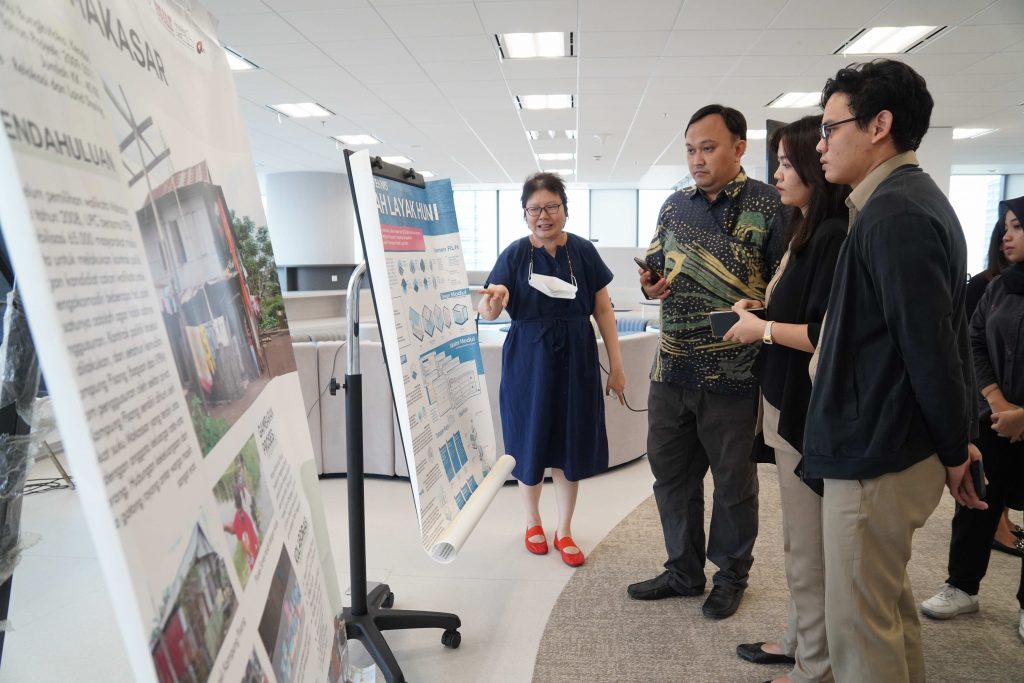
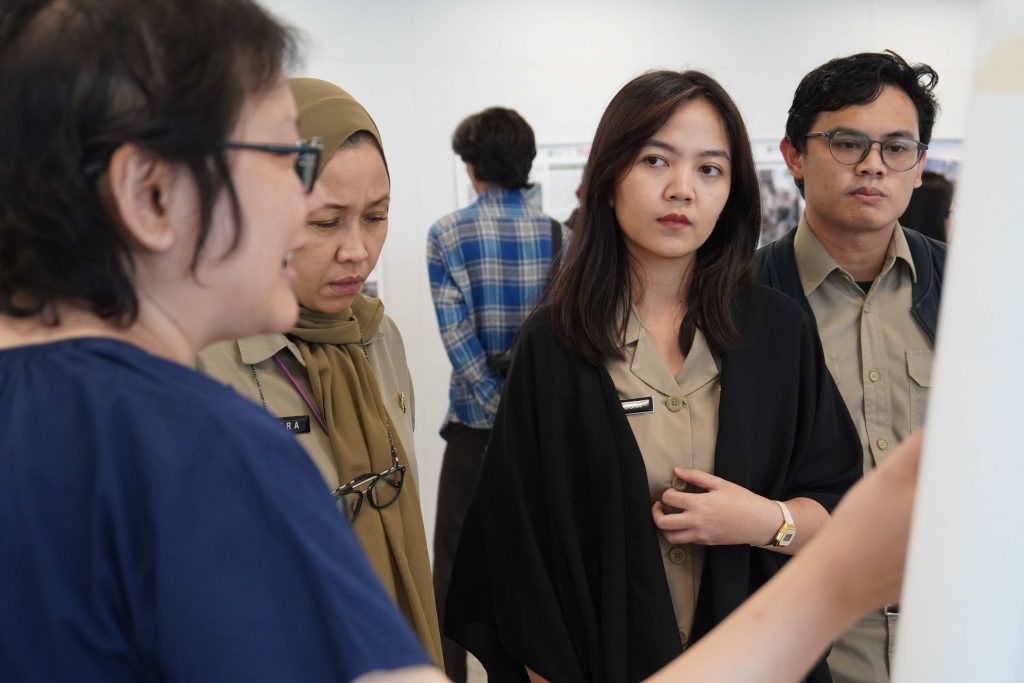
The Indonesia Urban Dialogue can effectively push requisition from the roots of policy and implementation of Perumahan Gotong Royong. This general output can be a concrete implementation of holistic and sustainable solutions to address housing and settlement issues in urban and informal settlement areas and contribute to creating more inclusive and resilient urban environments.
1.Development of Policies and Programs:
The declarations of the dialogue can be used as a basis for designing more effective policies and programs to provide housing and improve land tenure for low-income communities through the scheme of Perumahan Gotong Royong. Data-driven policy recommendations and policy briefs can serve as a foundation for policymakers to effectively address urban and informal settlement challenges, especially in the housing sector.
2.Collaborative Action Plan (CAP):
The result of the dialogue that might consist of some agreements or policy briefs with some program proposals would be detailed and would integrate various stakeholders, including the government, NGOs, the private sector, and the public, to participate in implementing sustainable solutions.
3.Campaigns and Advocacy:
Joint campaigns and advocacy would be undertaken to raise awareness and garner support from the public and relevant stakeholders, including mobilizing necessary resources.
4.Knowledge Platform:
A learning-sharing platform would be developed and accessible to various stakeholders to share experiences, best practices, and innovative solutions in addressing housing and settlement challenges.
The “Indonesia Urban Dialogue” involves relevant parties discussing adequate housing and land tenure provision for low-income communities living in urban areas and informal settlements. Total participants attended the Urban Dialogue event were 89 people. They included:
- The Government
- Non-Governmental Organizations
- Local Communities
- Private Sector
- Academics and Experts
- Media
- International Organizations and Donors
- Financial Institutions
Involving these stakeholders in the urban dialogue allows for a more comprehensive and diverse perspective, enabling broader consensus in finding solutions to housing and land tenure issues in urban areas and informal settlements.
